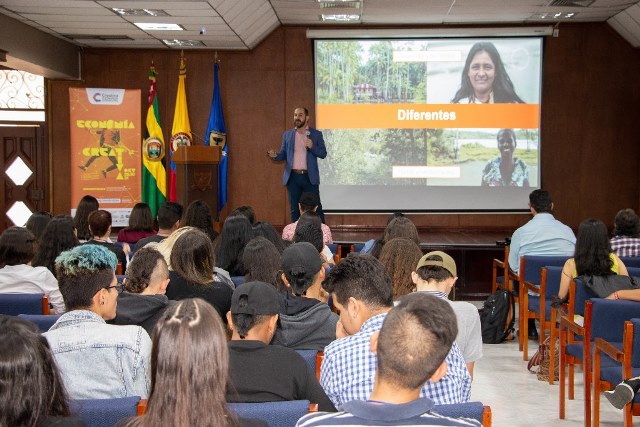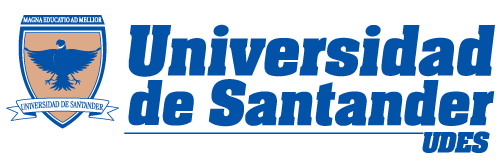LA UDES PUBLICA
- Fecha de publicación:
- 2023-09-01
- Tipo:
- Article
- Identificación:
- SCOPUS_ID:85180586276
- eID:
- 2-s2.0-85180586276
- Nombre de la revista:
- Bacteria
- Autor(es) UDES:
- Guerra-Sierra B.E.
- Otros Autores:
- Khoshru B., Mitra D., Nosratabad A.F., Reyhanitabar A., Mandal L., Farda B., Djebaili R., Pellegrini M., Senapati A., Panneerselvam P., Mohapatra P.K.D.
- Autor Principal:
- Khoshru B.
- Áreas del conocimiento:
- Agricultural and Biological Sciences (miscellaneous), Biochemistry, Genetics and Molecular Biology (miscellaneous), Immunology and Microbiology (miscellaneous)
- Tipo
- Journal
- eISSN
- 26741334
- Volumen
- 2
- Rango de páginas
- 129-141
- Fecha de publicación:
- 2023-09-01
- Tipo:
- Article
- Identificación:
- SCOPUS_ID:85178405420
- eID:
- 2-s2.0-85178405420
- Nombre de la revista:
- Salud Uninorte
- Autor(es) UDES:
- Gómez M.D.
- Otros Autores:
- Quintero M.V., Naranjo J.A.M.
- Autor Principal:
- Gómez M.D.
- Áreas del conocimiento:
- Medicine (all)
- Tipo
- Journal
- ISSN
- 01205552
- eISSN
- 20117531
- Volumen
- 39
- Rango de páginas
- 931-947
- Fecha de publicación:
- 2023-09-01
- Tipo:
- Article
- Identificación:
- SCOPUS_ID:85176406224
- eID:
- 2-s2.0-85176406224
- Nombre de la revista:
- Cirugia Plastica Ibero-Latinoamericana
- Autor(es) UDES:
- Villarreal D.C.
- Otros Autores:
- Sánchez-Álvarez D.C., Ramírez-Rivero C.E., Ruiz-González C.E., Navas A.G.
- Autor Principal:
- Sánchez-Álvarez D.C.
- Áreas del conocimiento:
- Surgery
Cuartil
Q4
- Ranking
- 25755
- Tipo
- Journal
- ISSN
- 03767892
- eISSN
- 19892055
- Región
- Western Europe
- País
- Spain
- Volumen
- 49
- Rango de páginas
- 217-223
- Cobertura
- 1975-2002, 2004-2021
- Fecha de publicación:
- 2023-08-01
- Tipo:
- Article
- Identificación:
- SCOPUS_ID:105000817483
- eID:
- 2-s2.0-105000817483
- Nombre de la revista:
- Revista de salud publica (Bogota, Colombia)
- Autor(es) UDES:
- Vanegas-Sáenz H.D., Alvarez-Rey N.E., Bohórquez-Chacón L.F., Pacheco-Casadiegos E.J.
- Otros Autores:
- Lizarazo-Parada J.E.
- Autor Principal:
- Vanegas-Sáenz H.D.
- Áreas del conocimiento:
- Medicine (all)
- Tipo
- Journal
- eISSN
- 25393596
- Volumen
- 25
- Rango de páginas
- 105365
- Fecha de publicación:
- 2023-08-01
- Tipo:
- Article
- Identificación:
- SCOPUS_ID:105000759487
- eID:
- 2-s2.0-105000759487
- Nombre de la revista:
- Revista de salud publica (Bogota, Colombia)
- Autor(es) UDES:
- Álvarez-Rey N.E., Cárdenas-Sandoval L.K., Atehortúa-Alarcón W.E., Lamprea-Flórez V.S.
- Autor Principal:
- Álvarez-Rey N.E.
- Áreas del conocimiento:
- Medicine (all)
- Tipo
- Journal
- eISSN
- 25393596
- Volumen
- 25
- Rango de páginas
- 97374
- Fecha de publicación:
- 2023-08-01
- Tipo:
- Article
- Identificación:
- SCOPUS_ID:105000703718
- eID:
- 2-s2.0-105000703718
- Nombre de la revista:
- Revista de salud publica (Bogota, Colombia)
- Autor(es) UDES:
- Alvarez-Rey N.E., Amador-Ariza M.A., Sierra-Castrillo J.
- Otros Autores:
- Camacho-López P.A.
- Autor Principal:
- Alvarez-Rey N.E.
- Áreas del conocimiento:
- Medicine (all)
- Tipo
- Journal
- eISSN
- 25393596
- Volumen
- 25
- Rango de páginas
- 99605
- Fecha de publicación:
- 2023-07-24
- Tipo:
- Article
- Número de artículo:
- e2333
- Identificación:
- SCOPUS_ID:85169460400
- eID:
- 2-s2.0-85169460400
- Nombre de la revista:
- Aquichan
- Autor(es) UDES:
- Rojas-Caballero J.A.
- Otros Autores:
- Massa E.R., Cogollo-Milanés Z.
- Autor Principal:
- Rojas-Caballero J.A.
- Áreas del conocimiento:
- Nursing (all)
Cuartil
Q4
- Ranking
- 21783
- Tipo
- Journal
- ISSN
- 16575997
- eISSN
- 20275374
- Región
- Latin America
- País
- Colombia
- Volumen
- 23
- Cobertura
- 2011-2015, 2017-2022
- Fecha de publicación:
- 2023-06-19
- Tipo:
- Article
- Identificación:
- SCOPUS_ID:85166318676
- eID:
- 2-s2.0-85166318676
- Nombre de la revista:
- Gaceta Medica Boliviana
- Autor(es) UDES:
- Leon J.S.T., Sarmiento L.A.D.
- Otros Autores:
- Badillo L.Y.E.
- Autor Principal:
- Leon J.S.T.
- Áreas del conocimiento:
- Medicine (all)
Cuartil
Q4
- Ranking
- 24577
- Tipo
- Journal
- ISSN
- 10122966
- eISSN
- 22273662
- Región
- Latin America
- País
- Bolivia
- Volumen
- 46
- Rango de páginas
- 121-122
- Cobertura
- 2020-2022
- Fecha de publicación:
- 2023-06-01
- Tipo:
- Review
- Identificación:
- SCOPUS_ID:85179154581
- eID:
- 2-s2.0-85179154581
- Nombre de la revista:
- Bacteria
- Autor(es) UDES:
- Guerra-Sierra B.E.
- Otros Autores:
- Khoshru B., Nosratabad A.F., Mitra D., Chaithra M., Danesh Y.R., Boyno G., Chattaraj S., Priyadarshini A., Anđelković S., Pellegrini M., Sinha S.
- Autor Principal:
- Khoshru B.
- Áreas del conocimiento:
- Agricultural and Biological Sciences (miscellaneous), Biochemistry, Genetics and Molecular Biology (miscellaneous), Immunology and Microbiology (miscellaneous)
- Tipo
- Journal
- eISSN
- 26741334
- Volumen
- 2
- Rango de páginas
- 98-115
- Fecha de publicación:
- 2023-05-01
- Tipo:
- Article
- Identificación:
- SCOPUS_ID:85218792279
- eID:
- 2-s2.0-85218792279
- Nombre de la revista:
- Medicina Interna de Mexico
- Autor(es) UDES:
- Bracho-Navarro D.F.
- Otros Autores:
- Cardona-Moica S.M., Gómez-Ayala J.A., Gómez-Contreras M.C.
- Autor Principal:
- Bracho-Navarro D.F.
- Áreas del conocimiento:
- Internal Medicine
Cuartil
Q4
- Ranking
- 25961
- Tipo
- Journal
- ISSN
- 01864866
- Región
- Latin America
- País
- Mexico
- Volumen
- 39
- Rango de páginas
- 548-553
- Cobertura
- 1997-1999, 2001-2021
- Fecha de publicación:
- 2023-05-01
- Tipo:
- Article
- Identificación:
- SCOPUS_ID:85159585151
- eID:
- 2-s2.0-85159585151
- Nombre de la revista:
- Revista Facultad Nacional de Agronomia Medellin
- Autor(es) UDES:
- Torres-Mantilla H.A.
- Otros Autores:
- Báñez-Aldave H.W., Cuesta-Herrera L., López-Hernández J., Andrades-Grassi J.
- Autor Principal:
- Báñez-Aldave H.W.
- Áreas del conocimiento:
- Forestry, Food Science, Animal Science and Zoology, Agronomy and Crop Science, Agricultural and Biological Sciences (miscellaneous), Horticulture
Cuartil
Q3
- Ranking
- 17405
- Tipo
- Journal
- ISSN
- 03042847
- eISSN
- 22487026
- Región
- Latin America
- País
- Colombia
- Volumen
- 76
- Rango de páginas
- 10309-10321
- Cobertura
- 2016-2022
- Fecha de publicación:
- 2023-03-27
- Tipo:
- Article
- Identificación:
- SCOPUS_ID:85150737585
- eID:
- 2-s2.0-85150737585
- Nombre de la revista:
- Revista Venezolana de Gerencia
- Autor(es) UDES:
- Carranza Hernández K.M.
- Otros Autores:
- Salazar Leyva M., Hinojosa Hernández M.d.J.
- Autor Principal:
- Carranza Hernández K.M.
- Áreas del conocimiento:
- Geography, Planning and Development, Business, Management and Accounting (all)
Cuartil
Q3
- Ranking
- 16664
- Tipo
- Journal
- ISSN
- 13159984
- Región
- Latin America
- País
- Venezuela
- Volumen
- 28
- Rango de páginas
- 832-854
- Cobertura
- 1996-2022
- Fecha de publicación:
- 2023-03-27
- Tipo:
- Article
- Identificación:
- SCOPUS_ID:85150709789
- eID:
- 2-s2.0-85150709789
- Nombre de la revista:
- Revista Venezolana de Gerencia
- Autor(es) UDES:
- Ramírez Rodríguez D.M.
- Otros Autores:
- Solano Brito K.Y., Palacio Sprockel L.E.
- Autor Principal:
- Ramírez Rodríguez D.M.
- Áreas del conocimiento:
- Geography, Planning and Development, Business, Management and Accounting (all)
Cuartil
Q3
- Ranking
- 16664
- Tipo
- Journal
- ISSN
- 13159984
- Región
- Latin America
- País
- Venezuela
- Volumen
- 28
- Rango de páginas
- 665-679
- Cobertura
- 1996-2022
- Fecha de publicación:
- 2023-03-27
- Tipo:
- Article
- Identificación:
- SCOPUS_ID:85150700361
- eID:
- 2-s2.0-85150700361
- Nombre de la revista:
- Revista Venezolana de Gerencia
- Autor(es) UDES:
- Quintero Ramos M.
- Otros Autores:
- Almanza Vides K., Díaz Arrieta I.M.
- Autor Principal:
- Quintero Ramos M.
- Áreas del conocimiento:
- Geography, Planning and Development, Business, Management and Accounting (all)
Cuartil
Q3
- Ranking
- 16664
- Tipo
- Journal
- ISSN
- 13159984
- Región
- Latin America
- País
- Venezuela
- Volumen
- 28
- Rango de páginas
- 514-526
- Cobertura
- 1996-2022
- Fecha de publicación:
- 2023-02-01
- Tipo:
- Article
- Identificación:
- SCOPUS_ID:85141989553
- eID:
- 2-s2.0-85141989553
- Nombre de la revista:
- Kidney International
- Autor(es) UDES:
- Jaramillo P.L.
- Otros Autores:
- Mann J.F.E., Joseph P., Gao P., Pais P., Tyrwhitt J., Xavier D., Dans T., Gamra H., Yusuf S.
- Autor Principal:
- Mann J.F.E.
- Áreas del conocimiento:
- Nephrology
Cuartil
Q1
- Ranking
- 402
- Tipo
- Journal
- ISSN
- 00852538
- eISSN
- 15231755
- Región
- Northern America
- País
- United States
- Volumen
- 103
- Rango de páginas
- 403-410
- Cobertura
- 1972-2022
- Fecha de publicación:
- 2023-01-13
- Tipo:
- Article
- Número de artículo:
- e2316
- Identificación:
- SCOPUS_ID:85148582780
- eID:
- 2-s2.0-85148582780
- Nombre de la revista:
- Aquichan
- Autor(es) UDES:
- Esteban A.N.P.
- Otros Autores:
- Vega E.A.U., Macedo A.B.T., Antoniolli L., Pinheiro J.M.G., de Souza S.B.C.
- Autor Principal:
- Vega E.A.U.
- Áreas del conocimiento:
- Nursing (all)
Cuartil
Q4
- Ranking
- 21783
- Tipo
- Journal
- ISSN
- 16575997
- eISSN
- 20275374
- Región
- Latin America
- País
- Colombia
- Volumen
- 23
- Cobertura
- 2011-2015, 2017-2022
- Fecha de publicación:
- 2023-01-01
- Tipo:
- Article
- Identificación:
- SCOPUS_ID:85209735265
- eID:
- 2-s2.0-85209735265
- Nombre de la revista:
- Aibi, Revista de Investigacion Administracion e Ingenierias
- Autor(es) UDES:
- Villamizar-Barrera L.D., Gualdron M.Z.
- Autor Principal:
- Villamizar-Barrera L.D.
- Áreas del conocimiento:
- Computer Science (miscellaneous), Engineering (miscellaneous), Industrial and Manufacturing Engineering, Electrical and Electronic Engineering
- Tipo
- Journal
- eISSN
- 2346030X
- Volumen
- 11
- Rango de páginas
- 52-60
- Fecha de publicación:
- 2023-01-01
- Tipo:
- Article
- Identificación:
- SCOPUS_ID:85200324997
- eID:
- 2-s2.0-85200324997
- Nombre de la revista:
- Urologia Colombiana
- Autor(es) UDES:
- Gaona J., Romero D., Robles P., Bravo D., Rueda R., Ortiz J., Sánchez D., González C., González F., Rueda A., Ortiz S., Camargo C.
- Autor Principal:
- Gaona J.
- Áreas del conocimiento:
- Urology
- Tipo
- Journal
- ISSN
- 0120789X
- eISSN
- 20270119
- Volumen
- 32
- Rango de páginas
- 3-8
- Fecha de publicación:
- 2023-01-01
- Tipo:
- Conference Paper
- Identificación:
- SCOPUS_ID:85184606384
- eID:
- 2-s2.0-85184606384
- Nombre de la revista:
- CEUR Workshop Proceedings
- Autor(es) UDES:
- Rincon-Yanez D.
- Otros Autores:
- Zheng Z., Zhou B., Tan Z., Savkovic O., Nikolov N., Roman D., Soylu A., Kharlamov E.
- Autor Principal:
- Zheng Z.
- Áreas del conocimiento:
- Computer Science (all)
- Ranking
- 19065
- Tipo
- Conference Proceeding
- ISSN
- 16130073
- Región
- Northern America
- País
- United States
- Volumen
- 3632
- Cobertura
- 1989, 1994-1995, 1998, 2000-2022
- Fecha de publicación:
- 2023-01-01
- Tipo:
- Article
- Número de artículo:
- 194
- Identificación:
- SCOPUS_ID:85184231021
- eID:
- 2-s2.0-85184231021
- Nombre de la revista:
- Salud, Ciencia y Tecnologia - Serie de Conferencias
- Autor(es) UDES:
- Hernandez Vergel V.K., Amaya Mancilla M.A., Cárdenas Sierra D.M.
- Autor Principal:
- Hernandez Vergel V.K.
- Áreas del conocimiento:
- Multidisciplinary
- Tipo
- Journal
- eISSN
- 29534860
- Volumen
- 2
- Fecha de publicación:
- 2023-01-01
- Tipo:
- Book Chapter
- Identificación:
- SCOPUS_ID:85183622893
- eID:
- 2-s2.0-85183622893
- Nombre de la revista:
- Understanding Complex Systems
- Autor(es) UDES:
- Parra-Valencia J.A.
- Otros Autores:
- Massey M.L.
- Autor Principal:
- Parra-Valencia J.A.
- Áreas del conocimiento:
- Software, Computational Mechanics, Artificial Intelligence
- Tipo
- Book Series
- ISSN
- 18600832
- eISSN
- 18600840
- Volumen
- 2023
- Rango de páginas
- 213-234
- Fecha de publicación:
- 2023-01-01
- Tipo:
- Article
- Identificación:
- SCOPUS_ID:85182099653
- eID:
- 2-s2.0-85182099653
- Nombre de la revista:
- Biomedica
- Autor(es) UDES:
- Celis M., Martínez D.
- Otros Autores:
- Navarro Y., Serrano N., Nieto W.
- Autor Principal:
- Celis M.
- Áreas del conocimiento:
- Biochemistry, Genetics and Molecular Biology (all)
Cuartil
Q3
- Ranking
- 17682
- Tipo
- Journal
- ISSN
- 01204157
- eISSN
- 25907379
- Región
- Latin America
- País
- Colombia
- Volumen
- 43
- Rango de páginas
- 66-78
- Cobertura
- 2001-2022
- Fecha de publicación:
- 2023-01-01
- Tipo:
- Article
- Número de artículo:
- 1266548
- Identificación:
- SCOPUS_ID:85181504606
- eID:
- 2-s2.0-85181504606
- Nombre de la revista:
- Frontiers in Psychiatry
- Autor(es) UDES:
- Rincón-Acuña J.C.
- Otros Autores:
- Palacios-Ariza M.A., Morales-Mendoza E., Murcia J., Arias-Duarte R., Lara-Castellanos G., Cely-Jiménez A., Araúzo-Bravo M.J., McDouall J.
- Autor Principal:
- Palacios-Ariza M.A.
- Áreas del conocimiento:
- Psychiatry and Mental Health
Cuartil
Q1
- Ranking
- 2995
- Tipo
- Journal
- eISSN
- 16640640
- Región
- Western Europe
- País
- Switzerland
- Volumen
- 14
- Cobertura
- 2010-2022
- Fecha de publicación:
- 2023-01-01
- Tipo:
- Conference Paper
- Identificación:
- SCOPUS_ID:85179639036
- eID:
- 2-s2.0-85179639036
- Nombre de la revista:
- Proceedings of the Annual International Conference of the IEEE Engineering in Medicine and Biology Society, EMBS
- Autor(es) UDES:
- Garcia R.G.
- Otros Autores:
- Anzolin A., Das P., Chen A., Grahl A., Ellis S., Purdon P., Napadow V.
- Autor Principal:
- Anzolin A.
- Áreas del conocimiento:
- Signal Processing, Biomedical Engineering, Computer Vision and Pattern Recognition, Health Informatics
- Tipo
- Conference Proceeding
- ISSN
- 1557170X
- Fecha de publicación:
- 2023-01-01
- Tipo:
- Article
- Número de artículo:
- e24715
- Identificación:
- SCOPUS_ID:85179169094
- eID:
- 2-s2.0-85179169094
- Nombre de la revista:
- Revista de Investigaciones Veterinarias del Peru
- Autor(es) UDES:
- Ramírez J.J.Q., Tarazona J.J.D., Toloza Y.A.G., Ardila-Gómez Y.A., Hernández V.G.P.
- Otros Autores:
- De Gennaro M.
- Autor Principal:
- Ramírez J.J.Q.
- Áreas del conocimiento:
- Veterinary (all)
- Tipo
- Journal
- ISSN
- 16823419
- eISSN
- 16099117
- Volumen
- 34
Bogotá
Cra. 14 N° 80-35
PBX: (+57) (601) 6914004
Línea Directa Interesados Programas: (601) 6914104
Horario de Atención: lunes a viernes de 7:00 a.m - 12:00 m. y de 2:00 p.m a 6:00 p.m
Pregrados
Universidad de Santander UDES. Vigilada Mineducación.
Resolución otorgada por el Ministerio de Educación Nacional: No. 6216 del 22 de diciembre de 2005 / Personería Jurídica 810 de 12/03/96.
Institución sujeta a inspección y vigilancia por el Ministerio de Educación Nacional. Resolución 12220 de 2016.
Notificaciones administrativas y judiciales:
Copyright © 2021 - Todos los derechos reservados




























